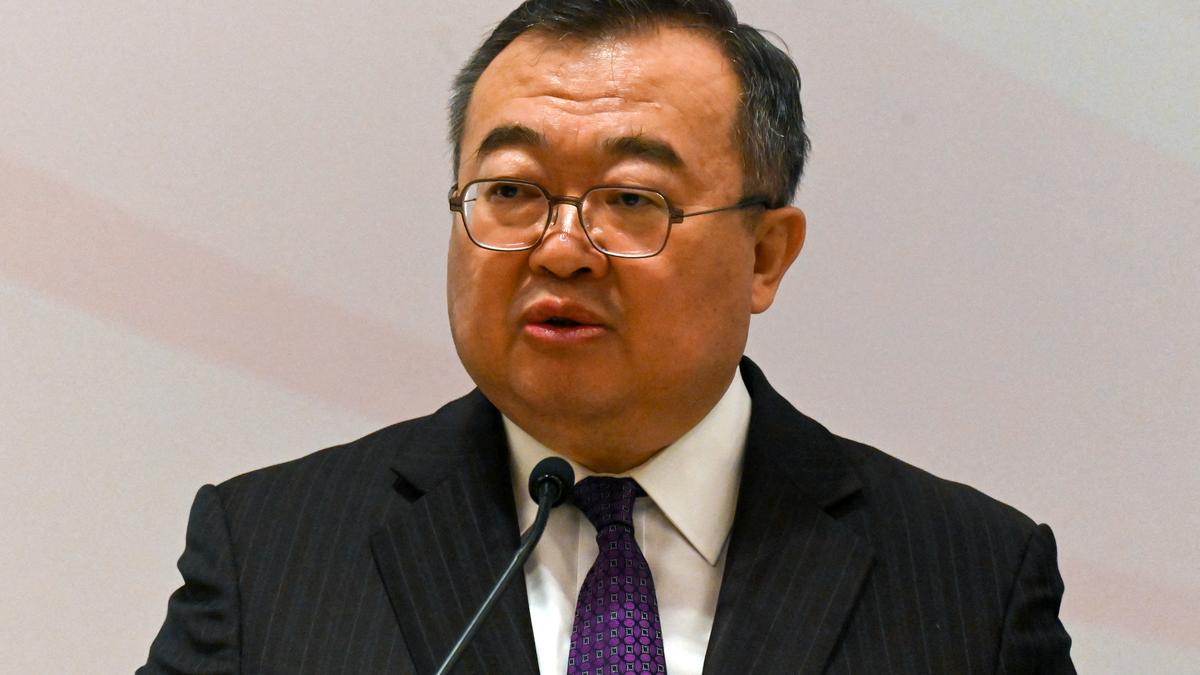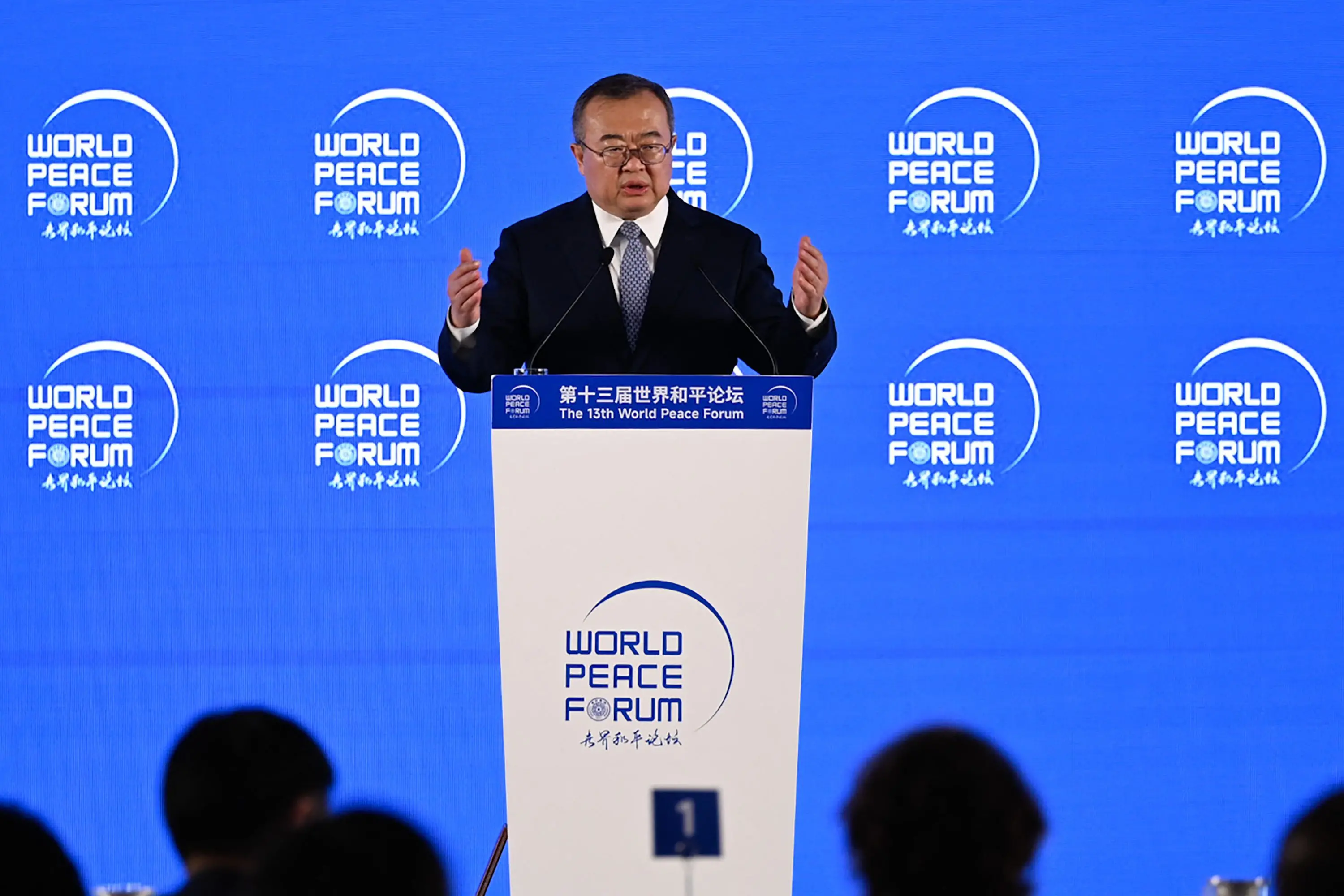In a dramatic turn of events, reports have emerged that Liu Jianchao, a senior Chinese diplomat, was allegedly “taken away” by authorities, sparking widespread speculation and international concern. Liu Jianchao, known for his significant role in China’s foreign affairs, especially in managing sensitive diplomatic relations, is a prominent figure whose sudden disappearance has raised alarms across diplomatic circles. This incident highlights the fragile and often tense nature of international diplomacy, where high-profile officials can become pawns in larger geopolitical conflicts. The development has triggered urgent diplomatic communications, as governments seek clarity on Liu’s status and the circumstances surrounding the event.
Liu Jianchao currently serves as China’s Ambassador to Indonesia and has previously held several key positions, including Director of the Information Department of China’s Ministry of Foreign Affairs. His career spans decades, during which he has been instrumental in shaping China’s diplomatic strategies in Southeast Asia and beyond. Known for his articulate communication and deep understanding of international affairs, Liu has been a trusted representative in fostering bilateral ties and managing complex geopolitical issues. His alleged detainment or forced disappearance marks an unprecedented disruption, raising questions about internal and external pressures influencing diplomatic personnel.
The context of Liu’s alleged “taking away” is believed to be intertwined with escalating tensions between China and other global powers over trade, territorial disputes, and regional security. Analysts suggest that such an incident could be part of broader political maneuvers aimed at sending strategic signals or leveraging diplomatic bargaining power. The lack of official confirmation and conflicting reports have further complicated the narrative, with international observers urging restraint and adherence to diplomatic norms. The incident has reignited discussions about the safety and autonomy of diplomats operating in volatile environments.
The alleged incident involving Liu Jianchao, a top Chinese diplomat reportedly ‘taken away’ by authorities, has sent shockwaves through diplomatic circles and ignited intense speculation regarding the circumstances and motivations behind such an unprecedented event. Liu, who holds a pivotal role as China’s Ambassador to Indonesia and has extensive experience in managing the country’s foreign affairs, symbolizes Beijing’s strategic outreach in Southeast Asia and beyond.
His sudden disappearance, whether a forced detention or other form of removal, disrupts the usual diplomatic protocols that govern the protection and operation of foreign envoys, casting a shadow over international norms and raising urgent questions about the security and autonomy of diplomats in politically charged environments. The ambiguity surrounding the incident exacerbates tensions and challenges the foundations of diplomatic trust that underpin global relations.
Liu Jianchao’s career trajectory reflects China’s broader ambitions and growing influence on the world stage. Over decades, he has served in crucial roles that shaped China’s foreign policy communication and engagement, including as the Director of the Information Department of the Ministry of Foreign Affairs, where he became the authoritative voice articulating China’s positions on complex international issues. His postings in influential global centers such as the United States and the United Nations equipped him with deep insights into global diplomacy and strategic communication.
In Indonesia, Liu’s role is especially critical given the country’s geopolitical importance in ASEAN and its position along vital maritime trade routes. His presence has been central to fostering bilateral relations, economic partnerships, and regional security cooperation, making the reported disruption to his tenure particularly concerning for diplomatic stakeholders.

Liu Jianchao’s Diplomatic Career and Influence
Liu Jianchao’s diplomatic journey reflects China’s expanding global ambitions and its nuanced approach to foreign policy. He has served in various capacities, including postings in the United States and at the United Nations, where he honed skills in negotiation and public diplomacy. His tenure as Director of the Information Department saw him become the primary spokesperson for China’s foreign policy, often navigating sensitive topics with a blend of firmness and diplomacy. His role in Indonesia, a key player in Southeast Asia, underscores China’s strategic interests in the region, particularly related to trade routes and regional security architectures.
His diplomatic style is characterized by clear communication, pragmatism, and a focus on building mutually beneficial relationships, even amid complex geopolitical challenges. Liu’s expertise in managing media relations and public perception has helped China articulate its positions effectively on the global stage. His disappearance or alleged detainment disrupts these ongoing efforts and could have ripple effects on China’s diplomatic engagements, especially in Southeast Asia. The uncertainty surrounding his situation fuels concerns about the stability and predictability of international relations involving China.
The media coverage surrounding Liu Jianchao’s alleged ‘taking away’ has fueled diverse narratives, ranging from speculation about espionage and political intrigue to concerns about internal Chinese politics or host country dynamics. This media spotlight intensifies scrutiny on the diplomatic relations between China and other nations involved, potentially affecting public perceptions and policy decisions. The rapid spread of unverified information poses risks of misinformation and heightens diplomatic sensitivities. It also highlights the critical role of responsible journalism in reporting such delicate matters with accuracy and context, helping to mitigate tensions rather than exacerbate them.
In diplomatic circles, the incident has triggered internal reviews and contingency planning, as governments assess the implications for their own envoys and diplomatic missions. Security protocols are being reexamined to ensure enhanced protections against potential threats, whether from state or non-state actors. The incident also encourages discussions on the preparedness of diplomatic corps to respond to crises involving personnel safety and operational continuity. Such strategic evaluations are crucial in maintaining the integrity and effectiveness of diplomatic efforts in an increasingly unpredictable international environment.
Implications for International Diplomacy and Geopolitical Stability
The alleged incident involving Liu Jianchao serves as a stark reminder of the vulnerabilities diplomats face and the fragility of diplomatic protocols in tense geopolitical climates. It underscores the risks associated with high-stakes international relations, where diplomats can be caught in crossfires of political conflict or used as leverage in broader strategic contests. The situation raises urgent questions about the protections afforded to diplomatic personnel under international law and the responsibilities of host countries to safeguard them.
Global reactions have been cautious but firm, with calls for immediate transparency and respect for diplomatic norms. The United Nations and several foreign ministries have emphasized the importance of upholding the Vienna Convention on Diplomatic Relations, which guarantees diplomatic immunity and security. The incident could prompt renewed diplomatic dialogues aimed at reinforcing these protections and addressing the challenges posed by an increasingly multipolar and competitive international system.
In the coming days, the international community will closely watch developments related to Liu Jianchao’s status and the diplomatic fallout. The situation could influence ongoing negotiations and power dynamics, particularly in regions where China holds strategic interests. It also highlights the broader theme of diplomatic security in a world marked by shifting alliances, economic rivalries, and contested sovereignties. Ultimately, how this incident is resolved may set important precedents for the treatment of diplomats and the conduct of international diplomacy in an era of heightened tensions.
The geopolitical backdrop to Liu’s alleged removal is marked by intensifying global rivalries and heightened sensitivities in diplomatic engagements. China’s expanding assertiveness in areas such as the South China Sea, trade negotiations, and regional influence contests has often led to friction with various countries.
In such a context, the incident involving Liu Jianchao could be interpreted as a manifestation of these broader tensions, potentially serving as a strategic move by adversarial entities or internal factions seeking leverage. It also raises alarms about the erosion of diplomatic safeguards that have traditionally protected envoys from politically motivated actions, threatening to unsettle the delicate balance of international relations. The opacity and lack of official clarifications only deepen concerns about the stability of diplomatic interactions in contested arenas.
From a legal perspective, Liu’s alleged ‘taking away’ challenges the core principles enshrined in the Vienna Convention on Diplomatic Relations, which guarantees the immunity and inviolability of diplomats in host countries. Any infringement on these protections not only violates international law but also risks triggering diplomatic retaliations and escalating conflicts between nations. The incident compels global actors to revisit the mechanisms that ensure diplomatic security and to consider whether existing frameworks are sufficient in an era marked by increasing geopolitical complexity and unconventional threats. Calls for reaffirming commitments to diplomatic norms and enhancing accountability for violations are gaining momentum among international legal scholars and policymakers.

The incident has also spotlighted the personal vulnerabilities faced by diplomats who operate on the front lines of international politics. Despite their official status and protections, envoys like Liu Jianchao navigate environments fraught with political intrigue, espionage risks, and sometimes hostile hostilities. Their roles often require balancing national interests with delicate diplomatic courtesies, a task made more perilous when geopolitical rivalries intensify. The reported disruption to Liu’s diplomatic functions highlights the human dimension of international relations, reminding the global community of the need to safeguard those who serve as bridges between nations amid turbulent political landscapes.
International reactions to the news have been swift yet measured, reflecting the sensitive nature of the situation. Governments and international organizations have expressed concern while urging restraint and adherence to diplomatic protocols. The United Nations and multiple foreign ministries have underscored the importance of upholding the Vienna Convention’s protections and called for transparency regarding Liu Jianchao’s status. The diplomatic fallout from the incident could influence ongoing negotiations on various fronts, from trade to security, particularly in Southeast Asia where China’s influence is substantial. The global community remains watchful, recognizing that such incidents could set precedents affecting the treatment of diplomats worldwide.
Follow: Liu Jianchao
Also read: Home | Channel 6 Network – Latest News, Breaking Updates: Politics, Business, Tech & More

